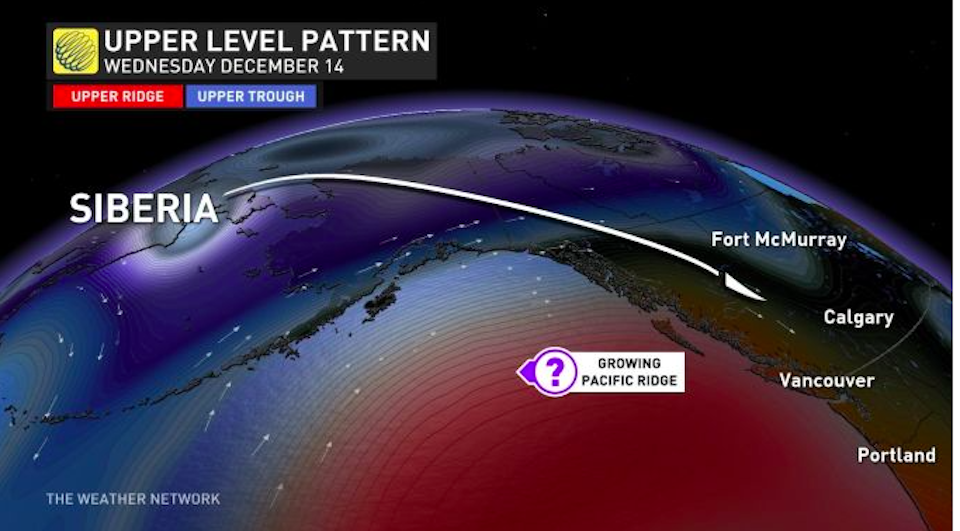Meteorologists warn that Western Canada will get hit with some of the coldest air on Earth next week.
While Metro Vancouver won't see the bone-chilling lows seen in the prairies, some piercing cold air will make its way into the region, bringing temperatures significantly below seasonal averages.
The Weather Network says Oymyakon, a rural area in Eastern Siberia and the "coldest permanently inhabited settlement on the planet," saw its coldest temperature since 1984, with a bone-chilling -61 C low on Dec. 12.
And the glacial air mass will make its way south from Russia to the Lower Mainland starting this weekend, according to a new report.
Since some of the worst cold snaps in Canadian history have originated overseas, locals should brace for bitterly cold weather and possibly above-average snowfall.
"Siberian air is the real deal," notes The Weather Network meteorologist Tyler Hamilton.
By scanning the upper levels of the atmosphere, the weather channel has been tracking the lobe of frigid air as it makes its way across the Arctic Ocean and Northern Alaska.
Over the weekend, the backside of a ridge building across western Alaska will create the ideal conduit to funnel the freezing air mass down to British Columbia and the Prairies.
While the Lower Mainland will see temperatures plummet well below seasonal averages, including as low as -7 C, the Prairie provinces "may struggle to climb out of the minus 30s," with some areas seeing temperatures drop down to the minus 40s.
Metro Vancouver weather forecast and the arrival of freezing Arctic air
Although snowfall is expected to accompany the subzero temperatures, it's too early to say exactly how much of the white stuff locals can expect at sea level and on the ski hills.
But the combination of the moist Pacific Ocean and freezing Arctic air "ultimately pose snowfall threats," notes The Weather Network.
"Some of the most memorable snow events in Canadian history have tapped into similar setups and delivered mind-numbing amounts of snow."
The Weather Network and Environment Canada called for below-average temperatures in their respective winter weather forecasts in Metro Vancouver following the snowiest November in over a decade.
Prior to the start of meteorological winter, there were a variety of temperatures throughout the fall, and taking an average temperature for the 90 days doesn't tell the complete story.
Instead, a closer look at the fall season in Vancouver shows that it was "volatile" and a "season of extremes," according to a new report.



